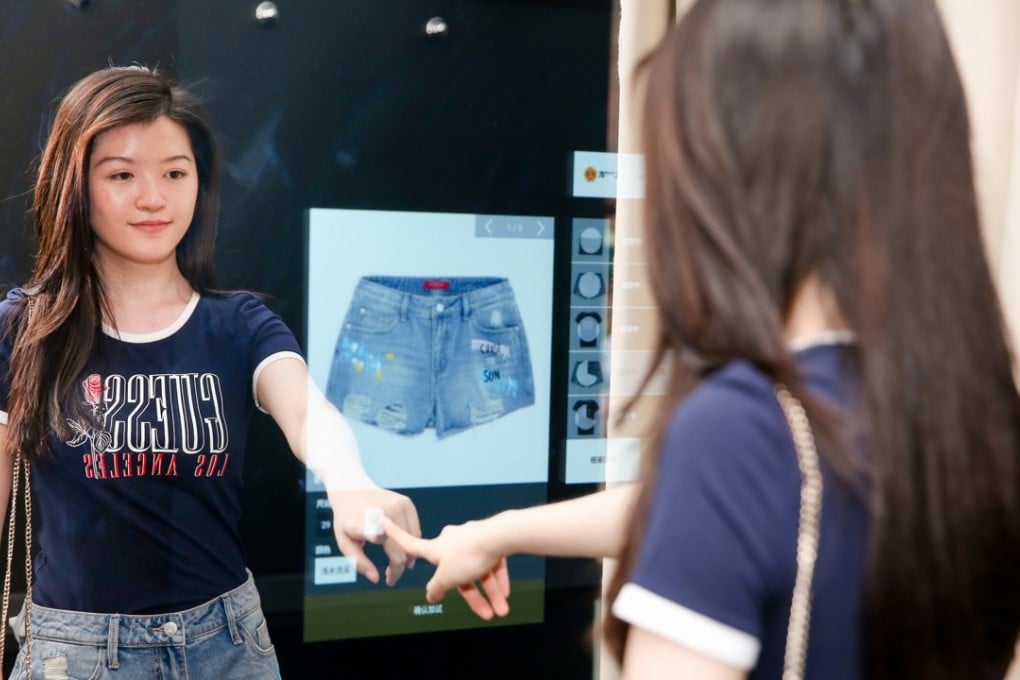Alibaba and Guess team up to marry fashion and artificial intelligence in New Retail concept
Alibaba says its partnership with Guess has allowed the retailer to ‘train and refine’ its FashionAI system

E-commerce giant Alibaba Group Holding and lifestyle brand Guess on Wednesday showed off a new artificial intelligence driven concept for future fashion stores, as retailers incorporate technology into offline shopping to improve customer experience and drive sales.
A concept store showing off Alibaba’s FashionAI technology has been set up on the campus grounds of Hong Kong Polytechnic University, will be open to the public from July 5 to July 7.
It is built around Alibaba’s e-commerce platform Taobao. Users check in to the store with their mobile Taobao QR code and all the items displayed in-store come with corresponding Taobao product listings, so that users can add the items they would like to purchase directly to their Taobao cart.
Within the store, each item, whether it’s a dress or a pair of heels, comes with an RFID tag. When a customer picks up a product, the smart mirror closest to the user registers the tag and displays an image of the item as well as the product details on the screen. The smart mirror can also provide mix and match suggestions for items in the store and styling suggestions based on previous purchases made by the user.
Customers in the FashionAI store can also select the clothes they would like to try out, which will be prepared for them in the fitting room. The fitting rooms are also equipped with smart mirrors which allow users to choose a different size or even new items to try without leaving the fitting room. Once they have decided which items to purchase, the checkout and payment process can be completed on their smartphones through the Taobao app.